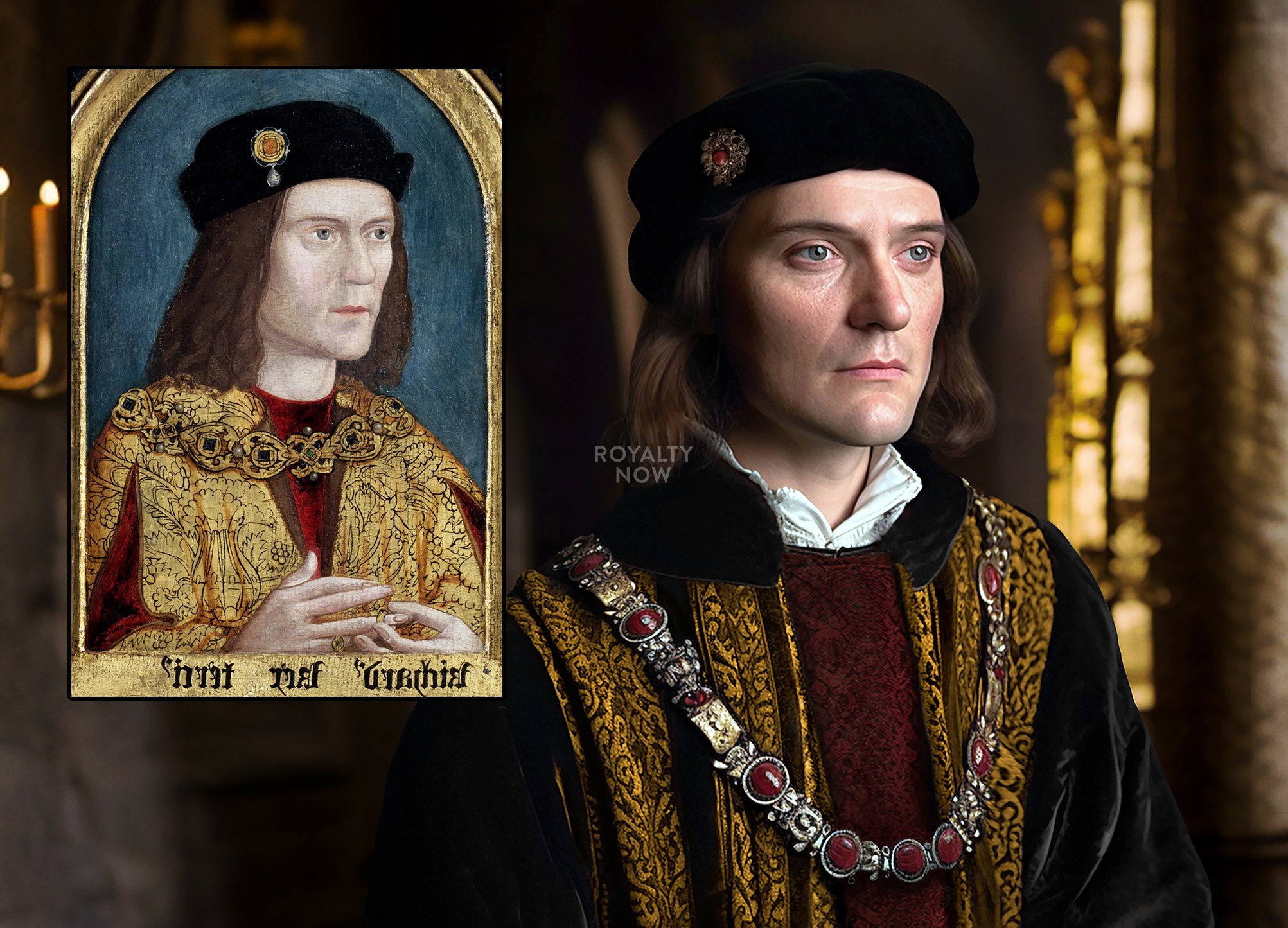The Faces of Richard III & the Princes in the Tower
So, what did Richard III and the Princes in the Tower really look like?
I wanted to make a re-creation of Richard, who we have more information on. But, I also wanted to give the boys a face, even though source material for their appearances is next to none.
Let’s start with Richard - there are no portraits of Richard surviving today that were made in his own lifetime. However, unlike the princes, researchers have located the lost body of Richard III, which allowed us to get a glimpse of the real man that we don’t get with other monarchs.
Phillipa Langley is the founder of the Richard III society and the main driving force behind the amazing discovery of Richard’s body under a parking lot in Leicester in 2012. This allowed researchers to learn more about Richard’s true appearance, and settle some long-held disputes.
Through genetic analysis, the University of Leicester team determined that he had a 96% chance of having blue eyes, and a 77% chance of having blonde hair, at least in childhood.
Portrait of Richard III believed to be the most accurate
This allowed them to tell which portrait of Richard was the most accurate, and it seems to be the earliest version found - this arched portrait made about 30-40 years after his death shows Richard with light eyes and medium-brown hair. This portrait is widely thought to have been copied from one made during his lifetime.
Before the discovery of his body, part of Richard’s legacy had been that he was an evil hunchback with a withered arm - this was mostly spread by Thomas More, who was only 8 years old when Richard died, and was a biased source who had a vested interest in making the Tudor line look more secure.
The researchers found that Richard did have pretty severe scoliosis - in real life this would cause a slight asymmetry, with the left shoulder being held higher than the right. But nothing so severe that it would cause a hunchback or a withered arm, like the rumors spread after his death.
The researchers also found that his bones were quite delicate, which matches up with contemporary accounts that he was a small man, who was surprisingly good in battle despite appearing feminine, in their words.
On the skeleton, there are 8 minor wounds from various weapons and 2 fatal blows at the base of the skull, which aligns with the accounts that he died in the middle of a group of attackers after being de-horsed in battle.
Craniofacial expert Caroline Wilkinson worked on a 3D model of Richard III, which I’ll also reference in my re-creation. In my depiction I’m going to try and kind of thread the needle between the most accurate portrait, and the forensic reconstruction, since the two do have some differences.
Now, let’s talk about the Princes - and this is where it gets more difficult.
The only contemporary portrait of Edward V
For young Edward V, at do have one likeness from an illuminated manuscript translated by Edward’s guardian and uncle, Anthony Woodville. There is also this stained glass depiction, made after Edward’s death in the 1500s.
And of course numerous artistic depictions and portraits from centuries much later.
So, what we do know is this: Edward V was a blonde boy of twelve, and that’s about it. It’s reasonable to guess that his younger brother Richard, who was 9 at the time, might look similar to him.
I’ve made some fully artistic depictions of the boys based on the single portrait we have, as well as the features of their relatives.
Some common York facial characteristics were these narrow eyes, solid jaw with strong chin, long straight nose, and medium to small lips. Their parents are both brown or hazel-eyed, so it’s likely they were as well. I’ve essentially borrowed some features from each parent.
So, while the Richard III re-creation is fully grounded in reality, the re-creations of the boys are just artistic, and meant to honor their memory.
Let’s take at Richard III and the Princes in the Tower, now:
Richard III, brought to life from his portrait, with some references to the forensic reconstruction.
An artistic depiction of the Princes in the Tower, made using features from their parents. These are previous re-creations I’ve made of Edward IV and Elizabeth Woodville.





